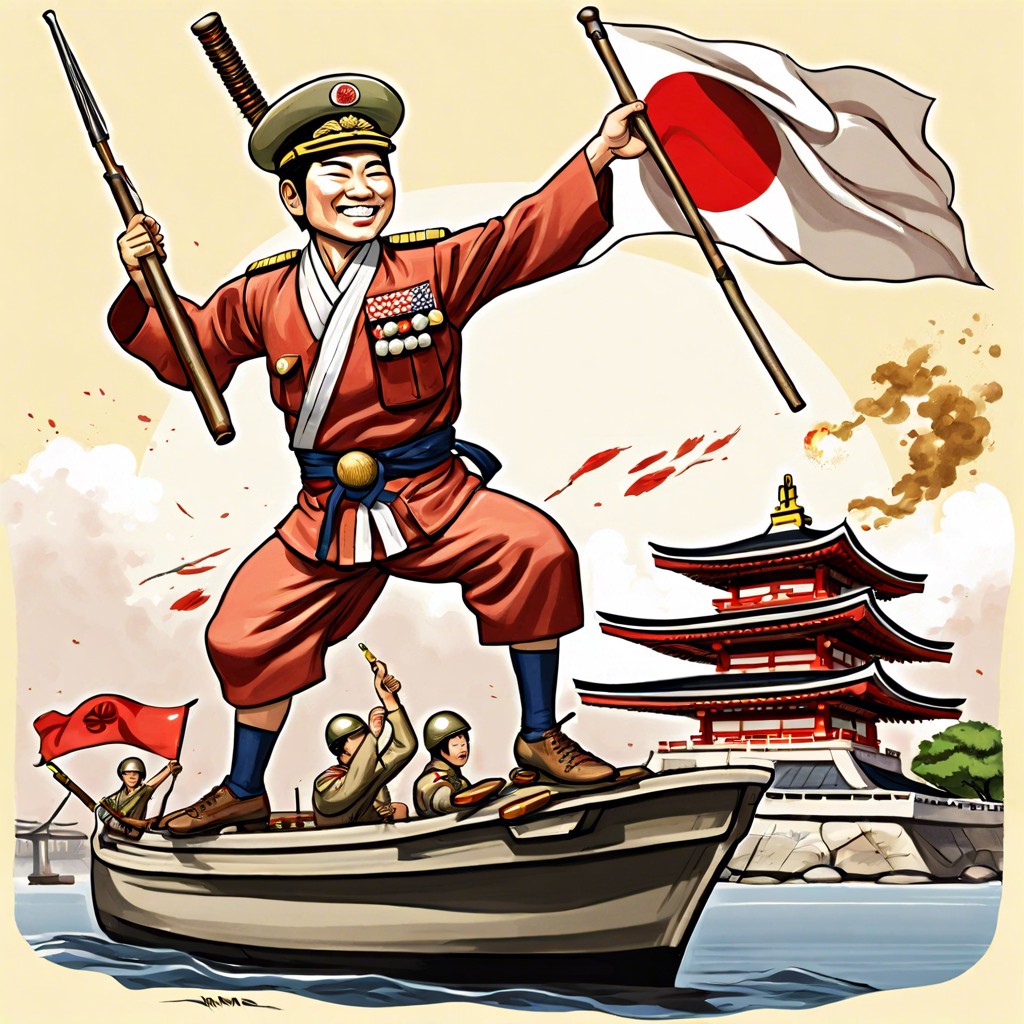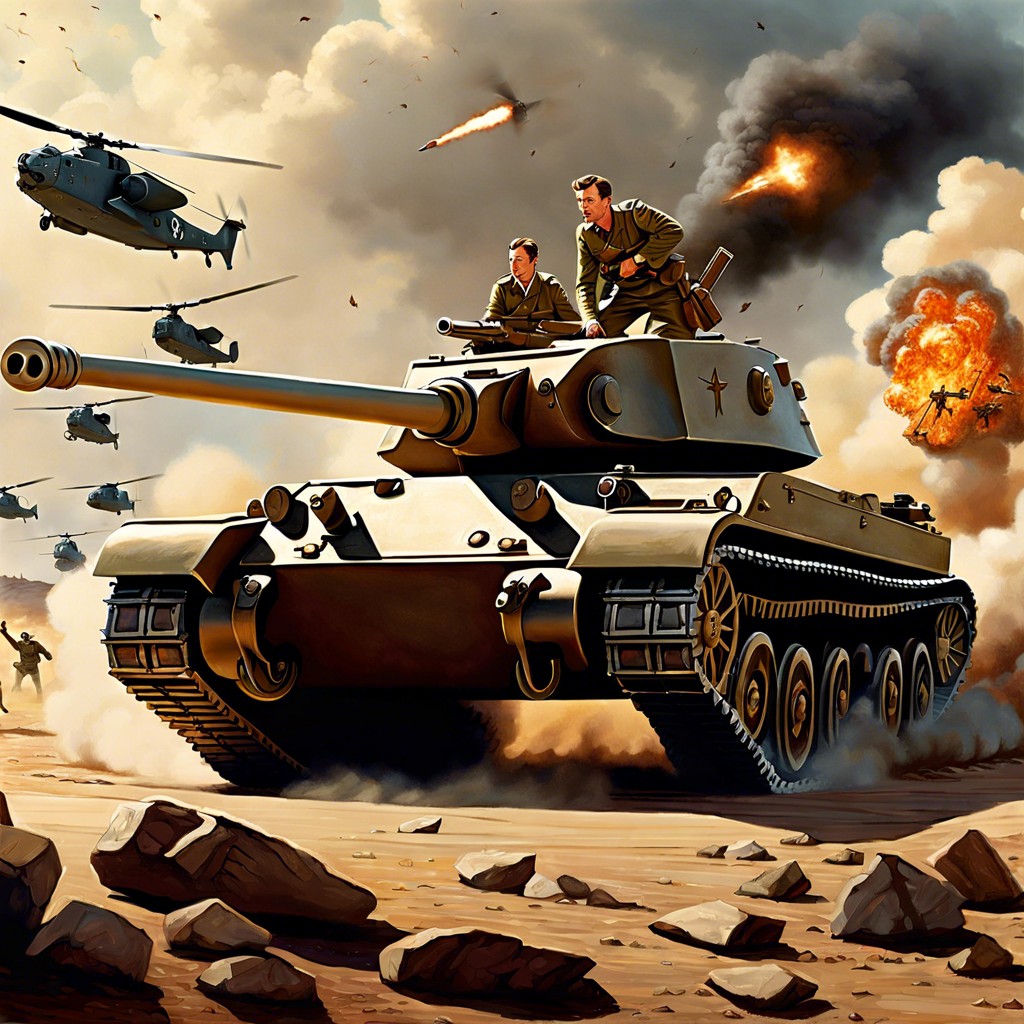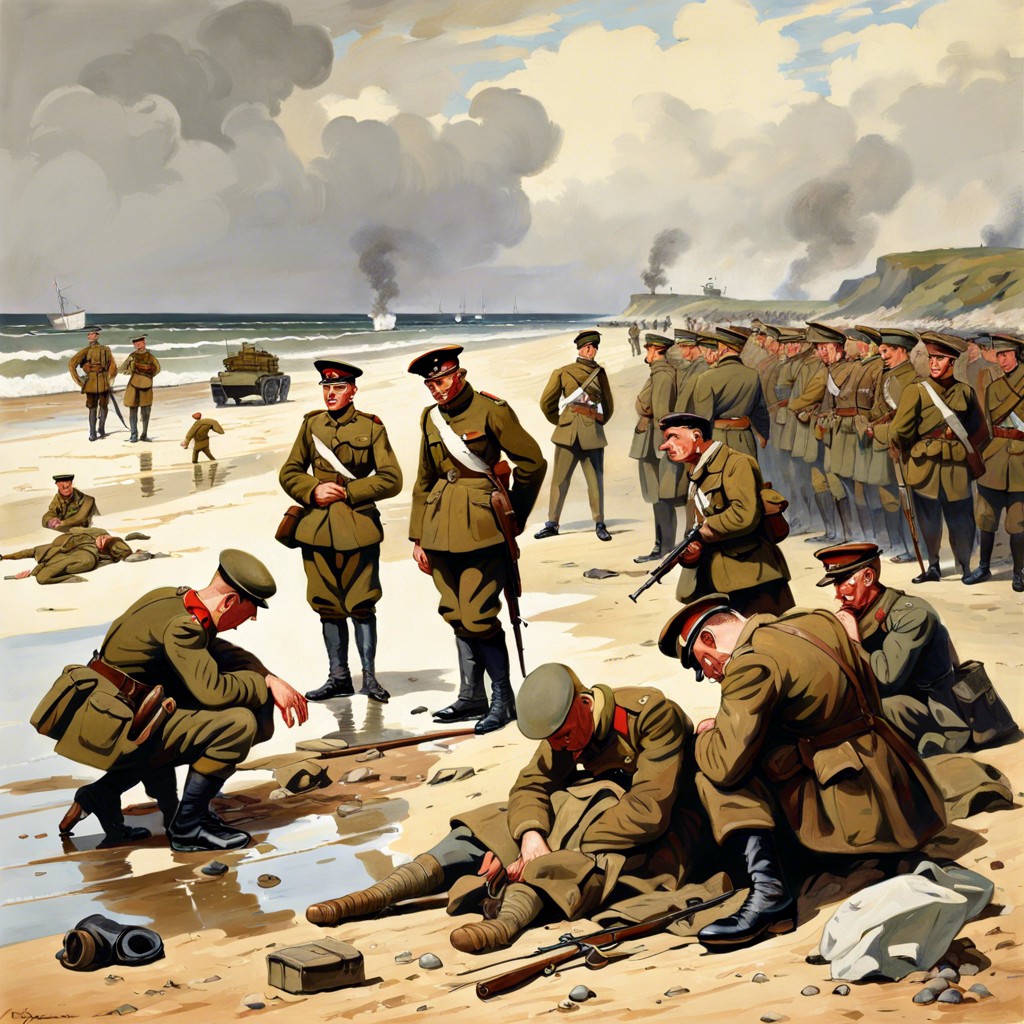Discover how the world might look today if Japan had won the Battle of Midway during World War II.
Imagine a world where the Battle of Midway, a turning point in the Pacific Theatre during WWII, tipped in favor of Japan. The ripple effects would be monumental—U.S. naval capabilities crushed, and morale in shambles. Axis powers emboldened, Allied strategies reeling. Asia’s geopolitical landscape would be dramatically altered, and propaganda machines on both sides would swivel into high gear. Curious what this alternate history would look like? Dive in as we dissect these strategic, military, and societal shifts.
Key takeaways:
- Japan’s strategic gains alter Pacific Theatre dynamics.
- U.S. naval capability and morale crippled by defeat.
- Shift in military strategies for Allied and Axis powers.
- Long-term geopolitical changes in Asia due to Japanese victory.
- Altered public perception and propaganda post-Midway win.
Strategic Gains and Immediate Consequences for the Pacific Theatre

Imagine a world where Japan emerged victorious at Midway. The immediate shockwaves would have altered the course of the Pacific war in significant ways.
First off, Japan would have seized control over the central Pacific, creating a formidable defensive perimeter. With Midway under Japanese control, the U.S. would find itself pushing a boulder uphill. Any American counteroffensives would face a much harder slog.
Next, the loss of four Japanese aircraft carriers at Midway was a devastating blow to Japan’s naval power. Flip that around. With those carriers intact, Japan could project its military might further, launching more aggressive campaigns in the Pacific.
Additionally, U.S. ships sunk, damaged, or captured would mean a delay in the American bounce-back. Fewer ships, more problems. Naval reinforcements would trickle, not flood.
Morale would have taken a hit too. Coming back from a major loss is no picnic. Troops and civilians alike would have had to brace for a longer, bloodier war ahead. And the Japanese? They’d feel like they hit a jackpot at a slot machine. बाजारो में भी वैसा ही फलता-फूलता खुद को महसूस करते।
Lastly, immediate strategic wins would boost Japan’s confidence, pushing them to pursue even more audacious plans. Australia? Yeah, that looks tempting. India? Why not? With the wind in their sails, the Japanese military might have expanded its reach even further, complicating Allied efforts to regroup.
A Midway victory for Japan would effectively roll out a red carpet for Tokyo across the Pacific.
Impact On U.S. Naval Capability and Morale
Imagine the U.S. sailors seeing their prized aircraft carriers smoldering and sinking into the Pacific. To say morale would hit rock bottom is an understatement. The Navy, already stretched thin, would suddenly find itself gasping for air.
First off, losing carriers like the Yorktown would mean fewer launch platforms for aircraft. This isn’t just about fewer planes in the sky; it’s about weakened air cover for the entire fleet. Expect a lot more heads ducking at the sound of enemy aircraft.
Then, there’s the logistical nightmare. The Pacific is a vast, watery expanse, and resupplying becomes harder without key bases. Think of it as trying to win a marathon while shedding pounds every mile.
Lastly, let’s talk trust. Commanders’ faith in their strategies would take a nosedive, leaving them second-guessing every decision. And trust me, doubt is the last thing you need when you’re playing a high-stakes game of ocean chess.
Shift in Allied and Axis Powers’ Military Strategies
Imagine the Allied powers scrambling to regain their footing. The U.S. Navy, licking its wounds, might pivot to a more defensive stance in the Pacific. Instead of daring offensives, expect more cautious, calculated maneuvers. Perhaps they would rely more on submarine warfare to harass Japanese supply lines, like an aquatic mosquito buzzing annoyingly yet effectively.
On the flip side, Japan would feel buoyed by their triumph, potentially overextending themselves. Confidence can be a double-edged sword, after all. Would they press into the Indian Ocean, seeking to disrupt British supplies and communications further? Unlikely, says common sense; but hey, we know how wartime logic sometimes takes a vacation.
The British, meanwhile, would possibly tighten their colonial grip, fearing Japanese incursions into India or Australia. More British resources might be diverted from Europe, altering the dynamics on the Western Front.
Let us not forget the delightful chessboard that is military strategy. Every move by the Allies and Axis would ripple through their respective campaigns, causing unexpected shifts and recalibrations. Who needs drama series when history provides all the plot twists for free?
Long-term Geopolitical Implications for Asia
The ripples of a Japanese victory at Midway would have reshaped Asia, creating a cascade of geopolitical consequences.
Firstly, Japan’s dominance would have likely extended its sphere of influence. Countries across Southeast Asia and the Pacific might have found themselves under the heel—or perhaps the sandal—of the Japanese Empire.
Economic control would have shifted dramatically. Japan would leverage its newfound strength to control vital sea routes and resources. Picture the spice racks in Tokyo brimming with goods from all over Asia.
Moreover, countries like China and India could face delayed independence movements. If Japan held more territory, it would go to great lengths to maintain it, quashing rebellions with the tenacity of a samurai defending his honor.
Finally, the post-war world would speak different diplomatic dialects. The United States may have had a harder time establishing itself as the post-war leader in Asia. The idea of Japan as a dominant power in the region would change the political chessboard, making it resemble less a game and more a strategic sushi roll—layers upon layers demanding precise cuts.
In essence, the entire political landscape of Asia would shift, potentially altering the course of history in ways unimaginable.
Changes in Public Perception and Propaganda
Imagine the flood of headlines, magazines, and radio broadcasts singing praises of a triumphant Japan. In such an alternate post-Midway reality, the narrative penned by Allied and Axis powers alike would shift dramatically.
Western media would grapple with portraying this loss, likely spinning tales of heroic struggles and the necessity for increased sacrifices. Cue the war bond posters, morale-boosting films, and a hefty dose of Churchillian grit!
Meanwhile, Japan’s media would revel in the victory, emblazoning Emperor Hirohito’s visage across every available surface. Propaganda would push the notion of Japan’s invincibility and divine right to dominate the Pacific.
Public sentiment in the U.S.? Not exactly cheery. Doubts and fears would shroud daily life. The average Joe might begin questioning the inevitability of Allied victory. The ‘good guys’ suddenly look a bit shaky.
On the Japanese home front, however, spirits would soar. Confidence in military supremacy would bolster civilian support. Perhaps, a martial swagger would permeate everyday interactions.
And let’s not forget other Axis powers, who’d undoubtedly take heart. A win at Midway would reinvigorate Axis propaganda across Europe and beyond, emphasizing a supposed turning of tides in their favor.
In essence, the win would paint a starkly different picture on both sides of the ocean, skewing public perception and altering the psychological battlegrounds just as profoundly as any strategic or military shift.




